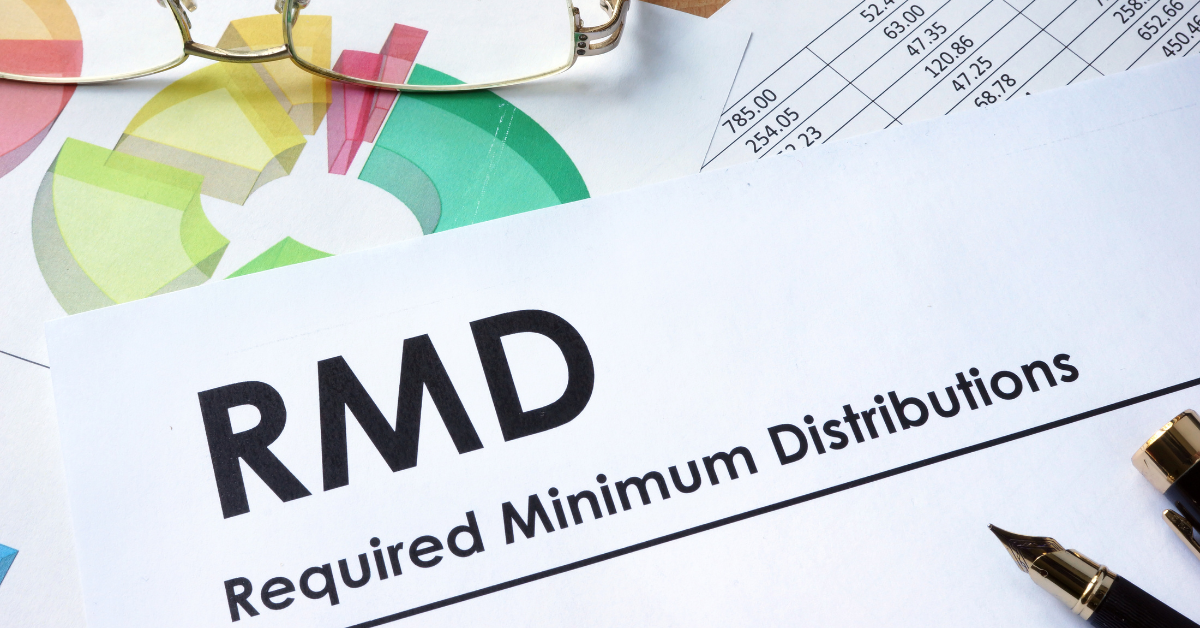January 16, 2024
You Can Still Get Tax Benefits From an RMD, Just Not What You Thought!

By Chris Palabe, CFS®, AIF®
At Palabe Wealth, we believe in giving back to our communities and adopting a generous attitude in life. Charitable giving is a priority for many of our clients, and they do so in a way that leaves a positive impact while optimizing their financial benefits. An effective strategy to streamline this process is utilizing required minimum distributions (RMDs) through a qualified charitable distribution (QCD). Instead of transferring RMDs to your bank account, you can directly contribute to a charity, combining charitable giving with financial planning.
In this article, we explore the advantages of QCDs and how they can maximize your charitable giving efforts. By understanding the benefits of this strategy, you can make informed decisions that align with your philanthropic goals while enhancing your financial future.
Benefits of Making a Qualified Charitable Distribution
While cutting out yourself as a middle man saves you a lot of time and administration, that’s not where the greatest benefit of a QCD lies. The greatest benefit is actually financial. You can save a lot of money on taxes by sending your RMD directly to a charity instead of taking it for yourself first.
When you make a QCD, it is excluded from your taxable income because the amount that you donate never shows up on your tax return. This leaves you with a lower taxable income and, therefore, a lower tax bill. And you don’t even have to itemize your deductions to get this tax break.
Are You Eligible to Make a Qualified Charitable Distribution?
Not all retirement accounts are eligible to use the funds as a QCD. It has to be an IRA that is a traditional, rollover, inherited, inactive SEP, or inactive SIMPLE plan. A SEP or SIMPLE is considered inactive if no employer contribution has been made during the plan year that ends during the tax year that the charitable contribution is made.
In addition to having the right kind of account, these other requirements must be met: (1)
- You must be age 70½ or older.
- To count toward the RMD for the year, the funds must come out of the IRA account by the RMD deadline, which is usually December 31. Excess donations cannot count toward future-year RMDs.
- QCDs cannot be greater than the amount that would otherwise be taxed as ordinary income (excluding non-deductible contributions).
- Total QCDs cannot exceed $100,000 per calendar year per taxpayer, regardless of the number of charities donated to.
- Funds must be distributed directly to the charity. If you take a distribution and then give it to charity, it does not count as a QCD.
Is Your Charity Eligible to Receive a Qualified Charitable Distribution?
After establishing your own eligibility, you need to make sure that your charity is also eligible to receive a QCD. First, it must be a 501(c)(3) organization that is eligible to receive tax-deductible contributions.
On top of that, there are certain types of organizations that are not eligible to receive QCDs. (2) They are:
- Private foundations
- Supporting organizations (charities that only exist to support other exempt organizations, usually public charities)
- Donor-advised funds managed by public charities on behalf of individuals, families, or organizations
How Are Qualified Charitable Distributions Reported?
Unless it is an inherited IRA, QCDs are reported as normal distributions on Form 1099-R. For inherited IRAs, they are reported as death distributions. Though state rules vary, QCDs are not subject to federal tax withholding.
Because it is already tax-free, you may not claim the QCD as a charitable tax deduction. Even though you aren’t claiming it as a deduction, you need the same acknowledgment of the donation that you would need if you were. Keep this in your records in order to document the fact that the QCD was in fact qualified.
Partner With an Experienced Professional
At Palabe Wealth, we understand the importance of charitable giving in your life. Since you plan to make this a priority, why not make your contributions in the most tax-efficient way possible? QCDs offer a strategic opportunity to save, especially for those required to take minimum distributions from their retirement accounts.
However, it’s important to note that there are specific rules and requirements that must be met for distributions to qualify for exempt status. Collaborating with an experienced financial professional can give you the guidance and support you need in order to execute QCDs correctly. If you’d like to learn more about qualified charitable distributions, we’re here to help.
As your partner, we work to simplify your financial management and stabilize your financial future. Schedule a 15-minute introductory phone call or call us at 847-249-6600 to learn if we are the right fit for your financial goals.
The opinions voiced in this material are for general information only and are not intended to provide specific advice or recommendations for any individual.
This information is not intended to be a substitute for specific individualized tax advice. We suggest that you discuss your specific tax issues with a qualified tax advisor.
This material was prepared for Palabe Wealth Inc.’s use.
_________
(1) “What is a qualified charitable distribution?”, Fidelity Charitable, 2023-2024
(2) Qualified Charitable Distributions (QCDs), Fidelity, 2023-2024

Chris Palabe, CFS, AIF®
Chris Palabe is the CEO and a Financial Advisor at Palabe Wealth, a firm that provides exceptional expertise in the Financial Planning space. For over 25 years, he has cultivated a deep understanding of the complexities of wealth management and retirement planning, making him a valued advisor to both Plan Sponsors of 401(k) plans and Individual Investors.
Holding esteemed designations such as Certified Fund Specialist (CFS) and Accredited Investment Fiduciary (AIF), Chris showcases his commitment to upholding the highest standards of investment advice and fiduciary responsibility in his advisory relationships. These designations are a testament to his knowledge and dedication to providing clients with sophisticated and ethical financial guidance.
He holds his Series 6, 7, 63, and 65 licenses through LPL Financial, which qualify him to offer a broad range of financial products and services.
Chris’s distinguished career is characterized by his unwavering commitment to his clients' financial well-being. He focuses on crafting tailored strategies that aim to optimize retirement outcomes and financial independence. He continually strives to help the individuals he works with on their path towards financial success.
Over the years Chris has refined a consistent, strategic investment philosophy supported by a significant body of academic research. He believes that a widely diversified portfolio of investments tailored to each client’s unique risk tolerance and financial goals is the key to their financial success.
Beyond his professional achievements, Chris has a profound passion for dressage, a highly skilled form of horse riding performed in exhibition and competition. This discipline requires a remarkable level of dedication, precision, and harmony between rider and horse, qualities that mirror his approach to financial planning.






